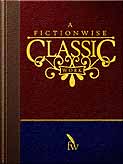- Ta-Nehisi Coates Reads
- Newly Added eBooks
- Lucky Day!
- Most Popular eBooks
- Classic Reads - Always Available
- Indie Authors
- See all ebooks collections
- Newly Added Audiobooks
- Audiobooks for the Whole Family
- Most Popular Audiobooks
- Try Something Different
- Great Narrators
- Lively Listens 🎧
- See all audiobooks collections
